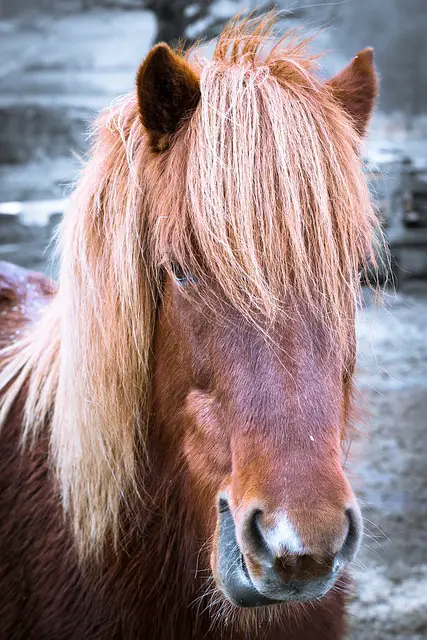Last Updated on April 7, 2022 by Allison Price
Sometimes horses lick and chew their training material. This has been thought to be a sign that the horse learns or shows’submission’. A new study has shown that horses can show this behavior after being put in stressful situations.
Do you lick and chew? Submission or stress?
A team of scientists from Norway’s University of Life Sciences studied the social behavior of feral horses in natural environments to gain insights into their chewing and licking behaviors.
M.Sc. M.Sc. Margrete Lie presented her findings to the 14 th International Society of Equitation Science conference in Rome last Wednesday.
The team sought to determine if non-nutritive chewing was used to signal submission to another horse, and to examine whether the behavior is possible in calm and stressed situations.
Researchers tested whether non-nutritive chewing could be used to signal submission. They found that when one horse (the aggressor), approached another horse (the receiver) in a threatening fashion, the behavior would be performed by the recipient but not by the aggressor. The researchers recorded and observed different behaviour sequences that involved aggressive interactions, such as when one horse threatened another horse or herded them. They also recorded whether either horse engaged in the chewing behavior.

It was fascinating to see that both the approaching horses and the recipients were involved in chewing. The aggressor actually chewed more than the recipient horse, disproving the idea that this behavior is a submissive signal.
Researchers also looked into whether non-nutritive chewing occurs in between relaxed and tense situations. The researchers observed the horses’ behaviours and found that most of their behaviours prior to chewing were tense, while the majority of their behaviours after chewing was relaxed. Chewing occurs when horses move from a relaxed to a tense state.
Researchers concluded that chewing may be linked to a shift from dry mouth due to stress (sympathetic activation) to salivation associated relaxation (parasympathetic activity).
This study shows that horses did not use non-nutritive chewing as a submissive sign in the situations observed. However, it was seen after a stressful situation, possibly as a response for a dry mouth.
Researchers acknowledge that more research is needed to determine the stress response to non-nutritive chewing. This study shows that horses may lick and chew when they are in stressful situations. It could be used to determine if the previous situation was stressful.
Please visit the ISES position statement regarding the use/misuse leadership and dominance concepts for horse training.
“We examined feral horses in their natural environment, observing how they behaved. We wanted to observe horses in their natural habitat. The horses lived in a 334km 2 park and there were just under 200 horses in the area. As is the case with domestic horses, no stallions were removed from this population.
“It was fascinating to see how many horses engaged in chewing behavior and how obvious it was that all people did chew, not just’submissive’ ones.”
“The study found that horses chewed between relaxed and calm situations. However, it doesn’t say if this is a relaxation response or if chewing aids in relaxation. This study needs to be analyzed more carefully with stress measurements.

